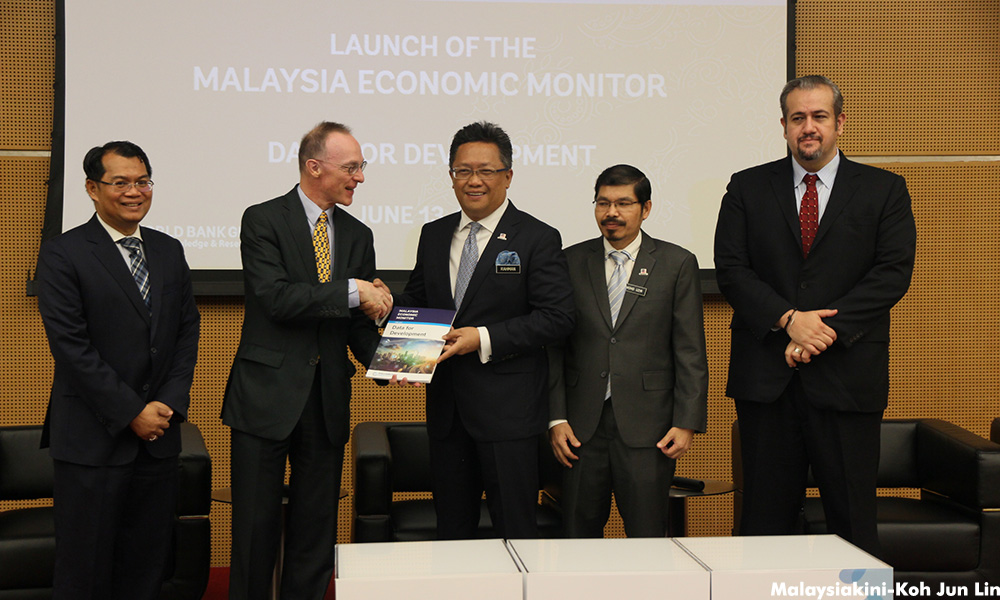
Malaysia’s gross domestic product (GDP) is expected to grow by 4.9 percent this year as a result of continued increase in private consumption, according to the World Bank.
This is slightly higher than the government’s forecast of between 4.3 percent and 4.8 percent, and the World Bank’s own forecast of 4.4 percent in April. In comparison, Malaysia experienced a GDP growth of 4.2 percent last year.
“It is interesting in the World Bank when we find ourselves projecting growth just slightly above the range that the government projects.
“Sometimes we are a little bit low, but this time we are a bit above. Growth has been quite strong, and we’re actually quite positive for the remainder of 2017,” the World Bank’s Southeast Asia Office said today at the launch of the semi-annual Malaysia Economic Monitor Report in Kuala Lumpur.
The report forecasted that growth would remain steady at 4.9 percent in 2018, before increasing to 5.0 percent in 2019.
“Private consumption remains the primary anchor of economic growth. Private consumption keeps expanding strongly, broadly driven by stable labour market conditions and continued wage growth.
“Also, ongoing government income-support measures, particularly the Bantuan Rakyat 1Malaysia (BR1M) cash transfers, saw an increase in the transfer amount.
“Additionally, seasonal factors, such as festival spending, provided a further boost to private consumption,” the report said.
It said the Malaysian economy grew by 5.6 percent year-on-year during the first quarter of 2017, with private sector spending making up 11.7 percent of the GDP growth.
Inflation also peaked in Q1, 2017
Inflation had also peaked in the first quarter of 2017, to its highest level since November 2008, due to higher transport and fuel prices, as well as higher seafood prices due to unfavourable weather and removal of cooking oil subsidies in November last year.
Despite this, the report said, there were little signs of these factors leading to a second round of inflation. Nevertheless, it expressed concern for the low-income group, which spends almost 40 percent of their income on food.
The report also noted the ringgit’s volatility had subsided since Bank Negara Malaysia’s foreign exchange measures were introduced in November last year, and the currency’s depreciating trend had subsided.
Despite the upbeat tone, the report said Malaysia still faces risks from overseas, such as the risk of increased protectionism in the global market, geopolitical developments, and volatility in commodity prices.
“The country’s macroeconomic management has been constantly proactive, and effective in navigating near-term challenges in the economic environment.
“Nevertheless, of equal importance is the need to accelerate structural reforms in the economy, particularly raising the level of productivity and addressing some of its key challenges.
“These include adopting competitive neutrality in its regulatory stance, especially when it comes to government-linked companies,” the report said.- Mkini



No comments:
Post a Comment
Note: Only a member of this blog may post a comment.